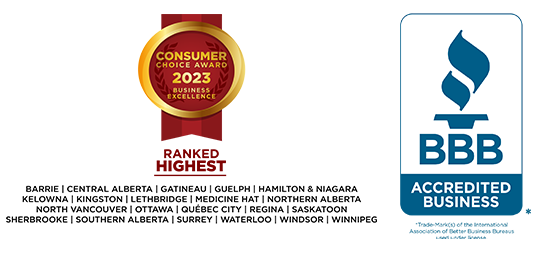When debt should and shouldn’t be your next DIY project
There are numerous reasons why some people choose to take on a project themselves rather then engage another person or company. These can range from an interest in learning a new skill, to a passion for doing the work themselves, pride and shame of asking for help, or lacking the financial means to hire a professional.

There are few things more satisfying than a job well done. However, as we’ve all seen on television — and likely in our own lives — taking on a project with no prior knowledge or experience doesn’t always yield the best result.
In many ways facing unmanageable debt on your own is a lot like building a deck, re-wiring a garden shed, or plumbing a new bathroom. Simple, straightforward projects can help build much needed skills and confidence. But taking on more than you can handle can do just the opposite and create an even bigger, costlier problem.
Here are some factors to consider in deciding whether to reach out to a Licensed Insolvency Trustee.
Is your debt load manageable?
Consider the following to determine whether you could successfully pay off your debt in a reasonable timeframe using a DIY approach:
- Look at your budget – Calculate your fixed and variable expenses, setting aside all credit card, loan, and line of credit payments. Can you afford your monthly minimum debt payments? Can you afford to pay more than the minimum — and if so, how much more?
Paying down the principal value of your debts is the only way to overcome them. If you can’t contribute meaningfully beyond the minimum, you may be looking at a potentially decades-long timeline to eliminate your debt. - Increasing cash flow – Determine if there’s another way to increase your cashflow such as increasing your work hours or taking on a part time job.
Be sure to consider any negative side effects such as increased tax, childcare, transportation costs, etc., too, which could offset any extra income you earn. - Assets – Do you have property you could sell to get a quick injection of cash? Liquidating gently worn clothing, electronics, second or recreational vehicles, etc. could help you pay down your debt.
Think twice about selling anything you might be keen to replace in the near term — especially if it means taking on debt — or anything that may otherwise be protected in a Bankruptcy or Consumer Proposal (e.g. RRSPs; equity value in tools, vehicles, real property, etc.).
Take the long view
Remember, every craftsperson started out as an apprentice — and the best craftspeople are still learning new skills years, and decades into their careers. Acknowledging you need professional support to deal with your debt can be difficult, but you may very well find it’s the best decision you ever made.
Consider reaching out to a Licensed Insolvency Trustee for a free, no-obligation assessment of your debt situation. We’ll help you better understand your financial challenges, discuss your options, and offer an unbiased opinion of the fastest and most cost-effective route to your financial fresh start.
If you decide the DIY route isn’t right for you, we’re the only professionals who can guide you through the Bankruptcy or a Consumer Proposal processes. But we’re also happy to discuss tips, strategies, and resources that can supercharge your DIY efforts. Either way, we’ll make sure you have the confidence, information, and skills you need to succeed today and for years to come.

